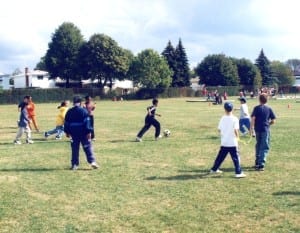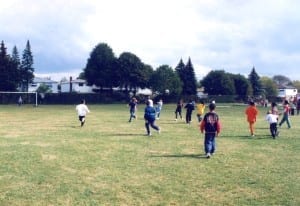Switching from one task to another
In previous posts I’ve discussed the topic of how we learn:
Mindfulness stands in contrast to mindlessness
Memories are malleable – capable of being stretched or bent into different shapes
Teaching
I retired as an elementary teacher in 2006. In a comment at a previous post, I’ve spoken about what I learned.
The post in question is entitled:
MCHS Bio for Graeme Decarie, who taught for three years at Malcolm Campbell High School
I’ve written a comment at the previous post, which I’ve repurposed as a separate post; the text proceeds as follows:
I got my start in public school teaching in 1979 by working as a supply teacher for the Metro Toronto School Board which ran Special Education programs in schools across the Toronto area, in schools under the jurisdiction of all of the Toronto-area school boards such as the Scarborough Board of Education, the Etobicoke Board of Education, and the Toronto Board of Education.
The kind of Special Education I was involved in was of a nature that, if a person switches to a regular classroom after a decade or whatever amount of time in Special Education, the transition is typically not an easy one, if the change can be made at all. It involves a change of mindset.
Teacher mindsets

Students at play at a Peel District School Board elementary school in the late 1990s. Jaan Pill photo
I was delighted to learn – because I always enjoy learning new and novel things – that in the Peel District School Board, which I switched to around 1995, from a Special Education program at the Scarborough Board of Education, there was an unwritten, in some ways unspoken policy, that teachers in Special Education programs, that deal with services for students with severe developmental delays, should be kept from making the transition to teaching in a regular classroom.
I assume the subtext was that administrators at the Peel District School Board (PDSB) had learned, from anecdotal evidence, that teachers in that category (who wished to switch from teaching several developmentally challenged students to teaching in a regular classroom), would in many cases flounder in what was for them a new setting.
I recall a PDSB teacher, who taught in a regular classroom, remarking to me that it would be interesting and fun to teach in a program for developmentally challenged students, but she would not be prepared to take that step, even for a few years, because she knew that teachers in such a Special Education program would not find it easy – in terms of the subsequent interview steps – to find their way back into a regular classroom. Administrators would tend to frown on the concept of a teacher, who had extensive experience teaching in a segregated Special Education classroom, making the transition to teaching at a regular program.
I was able to make the switch because I was switching from one school board to another, and the flagging, that would have otherwise been in place, was not in place.

Students at play at a Peel District School Board elementary school in the late 1990s. Jaan Pill photo
As well, I received excellent advice about how to conduct myself at an interview and, in a key interview with the Peel District School Board, could prepare myself by overhearing a discussion about my resume just before I had the interview. What I learned in the process of switching from one school board to another was of tremendous value to me. It gave me insights about the practice of teaching that would otherwise never have occurred to me.
Transition from teaching severely developmentally challenged students to working in a regular classroom
I had noticed that some teachers, who had taught with the Metro Toronto School Board for many years, were successful at once in making the transition to working in the regular system, at the point where MTSB programs were taken over by local school boards in Toronto, which as I recall occurred some years before all the Toronto-area boards were absorbed into the one big board, the Toronto District School Board.
The teachers who made the transition with ease had never forgotten whatever it is that they had learned in their Bachelor of Education programs, about the conceptual framework within which regular classroom teaching proceeds.
In my case, with help from a really good resource teacher, I did make the transition, when I was at the Peel District School Board, and I’m delighted that I was able to readjust my mindset. It was among the major achievements of my professional career. Not something that many people would notice, but for me, it was highly satisfying, to be able to switch from one way of looking at what teaching entails, to another way of looking at it.
How we learn
That experience also brought many insights my way. I came to realize, at least at an anecdotal level, that the kind of work a person does from day to day, as well as the experiences she or he happens to have had in university – which has a connection in turn with who their key teachers or mentors were – or in fact the learning experiences that a person has had in a day care setting and in elementary school and high school, have a tremendously powerful impact on how a person functions, during each moment in the course of a working day, and in how a person sees the world. That was an insight that has had a strong impact on me. It has, I believe, enabled me to better understand many things.
The transition that I was able to make, with the help of a resource teacher, underlined for me that the human brain is characterized, under the right learning conditions, by what in neuroscience research is described as neuroplasticity. The concept is of ongoing inspiration for me.
The experiences I had have also convinced me that the concept of Special Education doesn’t make a lot of sense. When I retired from teaching in 2006, such programs were, as I understand – albeit may evidence was anecdotal, and I don’t know how things are now – being dismantled across the Peel District School Board. That said, the situations in life that give rise to a concept such as Special Education, as an educational strategy, is not about to disappear. As with any aspect of life, the situations that I refer to require our close attention and extensive collaboration involving a wide range of stake-holders.
Rates of pay
In the late 1970s and early 1980s the rate of pay for MTSB supply teachers was about $80 a day. After that it edged toward upwards of $200 a day, as I recall. These days, teachers fresh out of a Bachelor of Education program often struggle to get a place on the supply teacher list. The demographics of teaching have changed dramatically over the past several decades.
In the 1980s, with the Metro Toronto School Board (MTSB), any person with a bachelor’s degree of any kind could get on the list for supply teaching. After two and a half years of supply teaching, on the advice of a principal that I worked with as a supply teacher, I took a year off to get my teaching certificate.
That worked out well for me – although, in retrospect, I would say that starting right into teaching after a Bachelor of Education would have been a better approach than working for several years as a supply teacher beforehand. The mindset that develops from several years of supply teaching differs in significant ways, at least in my anecdotal experience, from the kindest of a regular classroom teacher. A supply teacher learns to wing it when a lesson plan is not in place, as occurs at time in supply teaching. In some circumstances, that is a useful skill for a classroom teacher. As a standard way to approach the task at hand it may not, however, necessarily be an asset.
In Ontario, for political reasons, it was decided some time back that supply teachers with seniority would have the first crack at job openings in preference to teachers fresh out of a Bachelor of Education program. In my anecdotal experience, as an observer of how things work in education, that policy makes no sense at all.
When I first began supply teaching, I was for a time living on Toronto Island. As a result, quite a few people in that community launched teaching careers, by signing up as supply teachers with the Metro Toronto School Board. It was on Toronto Island, in the late 1970s and early 1980s that I first learned, in turn, the power of community self-organizing – of a community working together to do what no one else could do on behalf of the community.
Trustee fiefdoms
I’ve been following with interest the story of the Toronto District School Board, the board that was created when the previous Toronto-area boards of education were amalgamated into one large school board, as this recent post notes:
Please read the conclusion from the Jan. 15, 2015 Review of the Toronto District School Board
I feel really fortunate that, by happenstance, I happened to fall into the teaching profession after starting off as a supply teacher at a parent-cooperative infant day care centre, as I’ve described in my MCHS bio. As a teacher, I learned so many things about how the world works. When I retired from teaching, I continued to learn so many things about how the world works, that I didn’t happen to learn (or need to learn) during the years that I spent in what in some ways is a parallel universe.
One of the best things about public school teaching is that a person can learn many things, as a teacher.
As well, teachers in Ontario and elsewhere have done a great job in establishing a pension fund that enables retired teachers to receive a pension based on their years of service. Such a pension is, as I understand, increasingly a rarity in today’s economic environment. It’s a useful thing for any person to plan ahead, so that, one way or another, he or she can enjoy the years of retirement without a great deal of concern about where the next meal will be coming from. When I was younger, that question of the next meal was at times a matter of concern. In retrospect, such experiences have also given rise to many insights for me. It has given me a gift of empathy that I otherwise would possibly not possess.

Leave a Reply
Want to join the discussion?Feel free to contribute!